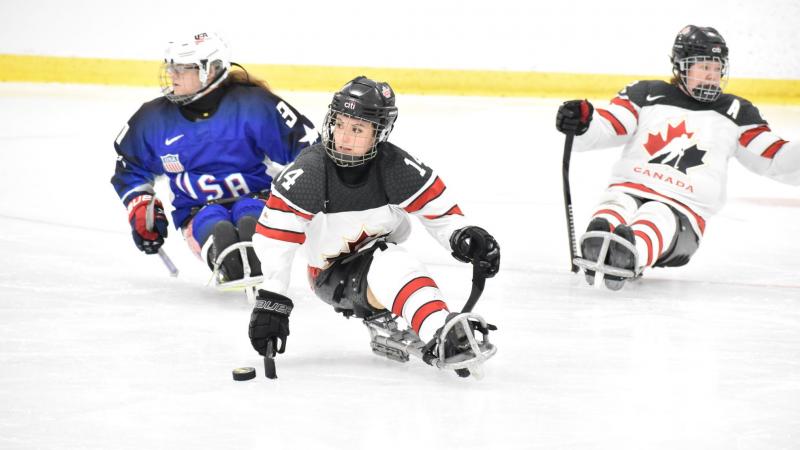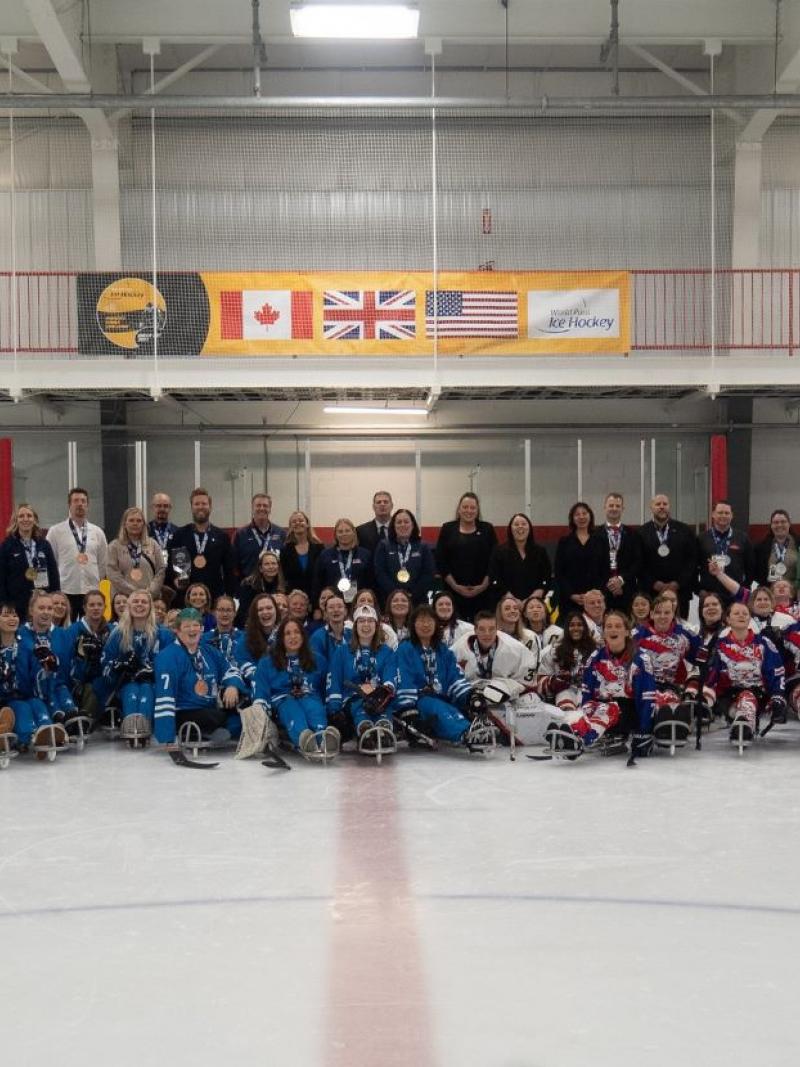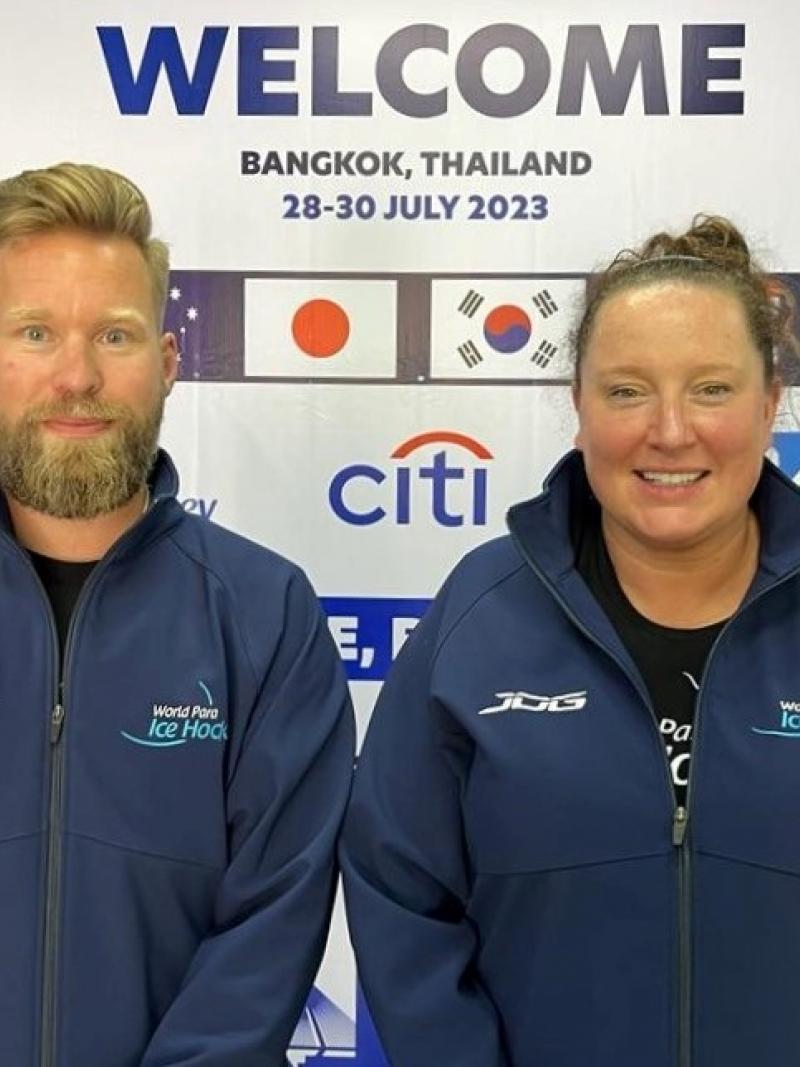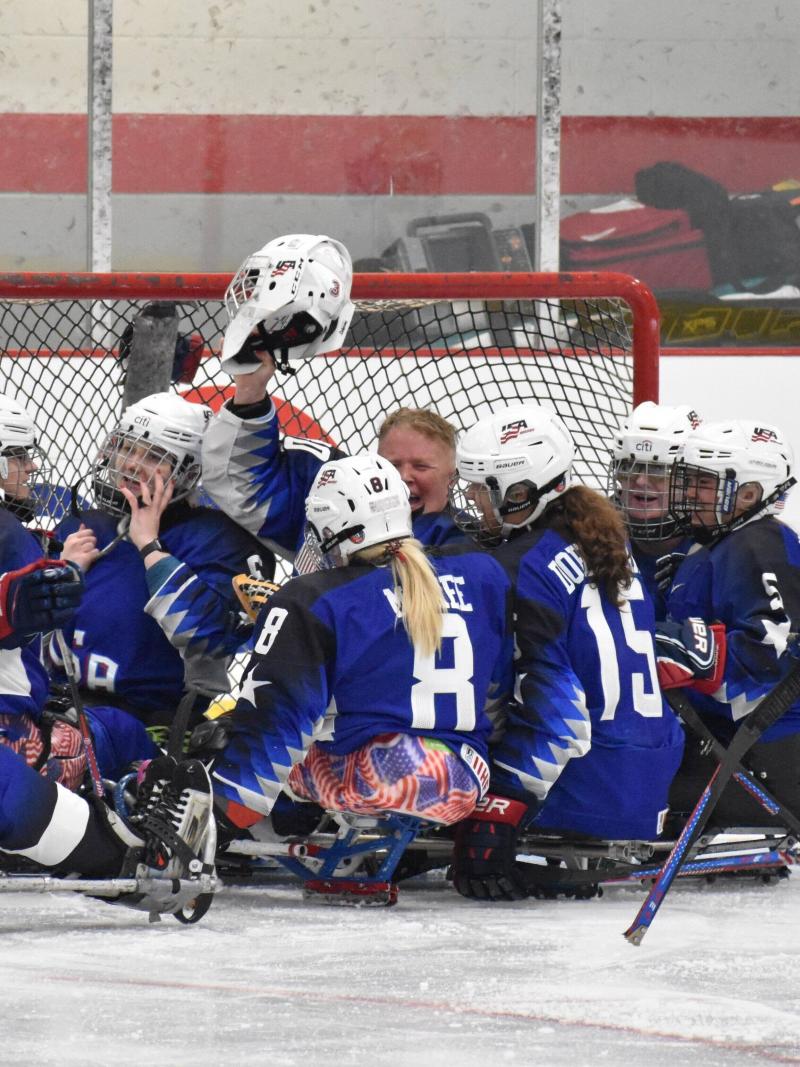IPC and UNESCO Disability Inclusion Conference highlights Women's World Challenge
World Para Ice Hockey joins International Disability Inclusion Conference: Harnessing the transformational impact of Para sport during the Paralympic Games in Paris to speak about the success of the Women's World Challenge to increase female participation and inclusion in the sport 30 Aug 2024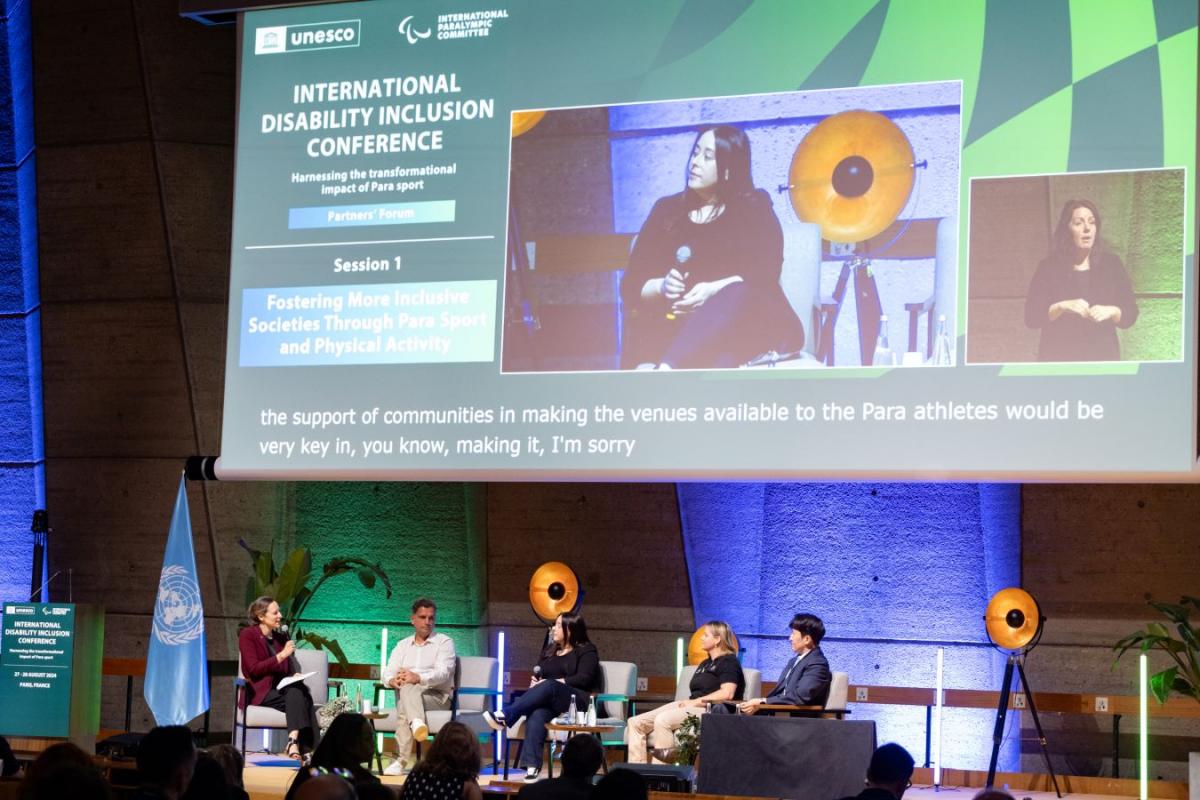
Over the past year, World Para Ice Hockey has achieved remarkable progress in increasing women's participation, with female representation rising from 0.01 percent to 19 percent.
The impact of the Women’s World Challenge — which will take place for the third consecutive year in October — is already paying dividends.
“We adopted a ‘Field of Dreams’ approach—if we build it, they will come,” said Michelle Laflamme, World Para Ice Hockey Manger. “We understood that for women to see themselves represented in the sport, they needed a clear pathway and a tangible goal to work towards. However, we did not know how many women were playing or where they were located globally. To better understand the landscape and gauge the level of interest, we created a women’s-specific event: the Women’s World Challenge in 2022. This event is not only an internationally sanctioned competition but also a development opportunity.”
Laflamme spoke to the success of bringing women into the sport this week at UNESCO’s and the IPC’s International Disability Inclusion Conference in Paris. The event was attended by multiple government ministers, aiming to kickstart a range of actions that will advance the rights and opportunities for the world’s 1.3 billion persons with disabilities.
Global experts from the Paralympic Movement, athletes, leaders in the private sector, and government representatives explored ways to encourage investment from all sectors in inclusive sport and physical activity to further disability inclusion.
Laflamme shared insights about women’s development in Para ice hockey, including past challenges, best practices, and athlete pathways, keeping in mind that only three women have competed in sport at the Paralympic Winter Games previously.
“When engaging with our members and key stakeholders, we frequently hear, ‘We would love to help or support, but without a women’s tournament at the Paralympic Winter Games, we can't justify a women’s programme or allocate funds for a sport not represented,” Laflamme said. “In response, we clarify that there is, in fact, no ‘male’ tournament at the Paralympic Winter Games—women are simply underrepresented.
“To address this, we consulted with our members to understand why women weren’t more involved in the sport. We realised that relying solely on feedback from members—who are predominantly men—was not the most effective approach. We then sought input from athletes and stakeholders at the grassroots level to better understand the barriers women face. As an International Federation, we recognised that it was improbable for women in every country to simply lack interest in the sport. We knew that many women globally either were interested or would become interested if given the opportunity.”
World Para Ice Hockey is working year-round to develop the women’s game, including assisting when possible, in breaking down financial barriers, helping with venue availability, and putting truth to misconceptions that the sport is only available to men.
The third Women’s World Challenge will take place from 25-28 October in Skien, Norway, hosted by the Norwegian Ice Hockey Association. Five teams will be featured — USA, Canada, Great Britain, Team Europe and Team Pacific — with the ultimate goal of expanding female participation in Para ice hockey worldwide. The first Women’s World Championships is set to take place next year.
Every year of the Women’s World Challenge thus far has drawn more participants, more social engagement and media coverage, and has even brought the athletes together to create a powerful community.
“One of the most surprising and inspiring aspects of this initiative has been the collaboration between countries,” Laflamme said. “While athletes typically compete to reach the podium, these athletes are united by a shared goal: to make history. They are working tirelessly throughout the season to motivate each other and to recruit new players, all in pursuit of their dream to compete in the Paralympic Winter Games.”

 Facebook
Facebook
 Instagram
Instagram
 Twitter
Twitter
 Youtube
Youtube

